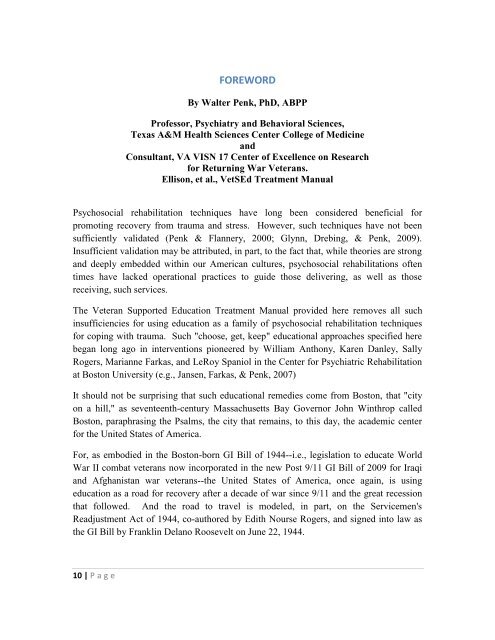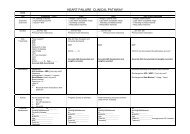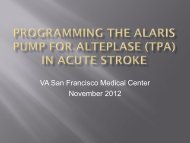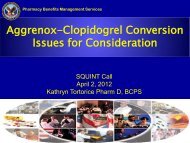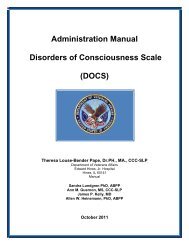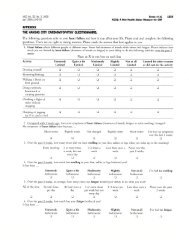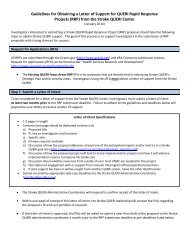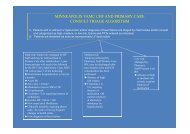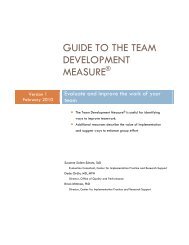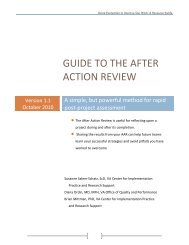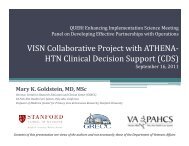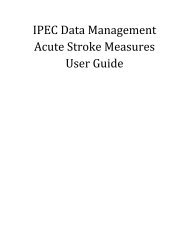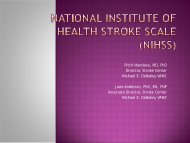The Veteran Supported Education Service Treatment Manual: VetSEd
The Veteran Supported Education Service Treatment Manual: VetSEd
The Veteran Supported Education Service Treatment Manual: VetSEd
Create successful ePaper yourself
Turn your PDF publications into a flip-book with our unique Google optimized e-Paper software.
FOREWORD<br />
By Walter Penk, PhD, ABPP<br />
Professor, Psychiatry and Behavioral Sciences,<br />
Texas A&M Health Sciences Center College of Medicine<br />
and<br />
Consultant, VA VISN 17 Center of Excellence on Research<br />
for Returning War <strong>Veteran</strong>s.<br />
Ellison, et al., <strong>VetSEd</strong> <strong>Treatment</strong> <strong>Manual</strong><br />
Psychosocial rehabilitation techniques have long been considered beneficial for<br />
promoting recovery from trauma and stress. However, such techniques have not been<br />
sufficiently validated (Penk & Flannery, 2000; Glynn, Drebing, & Penk, 2009).<br />
Insufficient validation may be attributed, in part, to the fact that, while theories are strong<br />
and deeply embedded within our American cultures, psychosocial rehabilitations often<br />
times have lacked operational practices to guide those delivering, as well as those<br />
receiving, such services.<br />
<strong>The</strong> <strong>Veteran</strong> <strong>Supported</strong> <strong>Education</strong> <strong>Treatment</strong> <strong>Manual</strong> provided here removes all such<br />
insufficiencies for using education as a family of psychosocial rehabilitation techniques<br />
for coping with trauma. Such "choose, get, keep" educational approaches specified here<br />
began long ago in interventions pioneered by William Anthony, Karen Danley, Sally<br />
Rogers, Marianne Farkas, and LeRoy Spaniol in the Center for Psychiatric Rehabilitation<br />
at Boston University (e.g., Jansen, Farkas, & Penk, 2007)<br />
It should not be surprising that such educational remedies come from Boston, that "city<br />
on a hill," as seventeenth-century Massachusetts Bay Governor John Winthrop called<br />
Boston, paraphrasing the Psalms, the city that remains, to this day, the academic center<br />
for the United States of America.<br />
For, as embodied in the Boston-born GI Bill of 1944--i.e., legislation to educate World<br />
War II combat veterans now incorporated in the new Post 9/11 GI Bill of 2009 for Iraqi<br />
and Afghanistan war veterans--the United States of America, once again, is using<br />
education as a road for recovery after a decade of war since 9/11 and the great recession<br />
that followed. And the road to travel is modeled, in part, on the <strong>Service</strong>men's<br />
Readjustment Act of 1944, co-authored by Edith Nourse Rogers, and signed into law as<br />
the GI Bill by Franklin Delano Roosevelt on June 22, 1944.<br />
10 | P a g e


